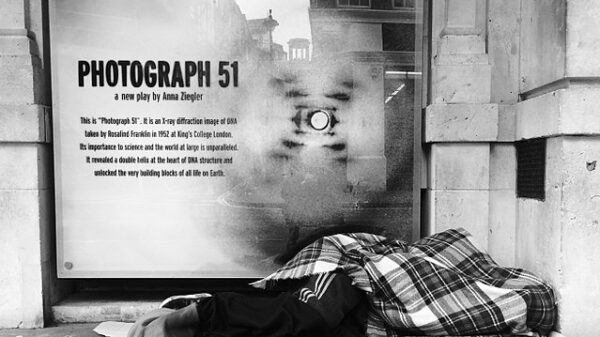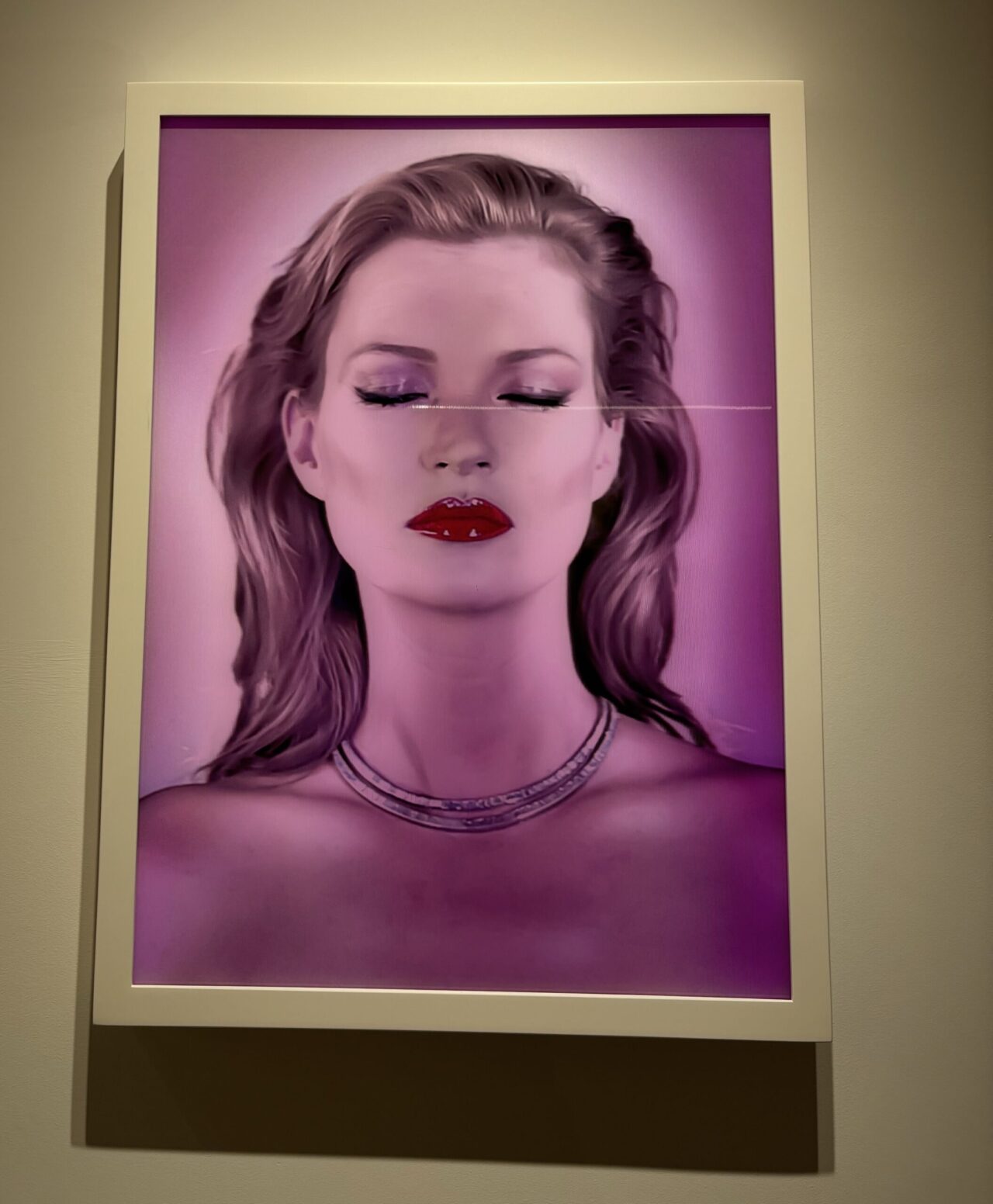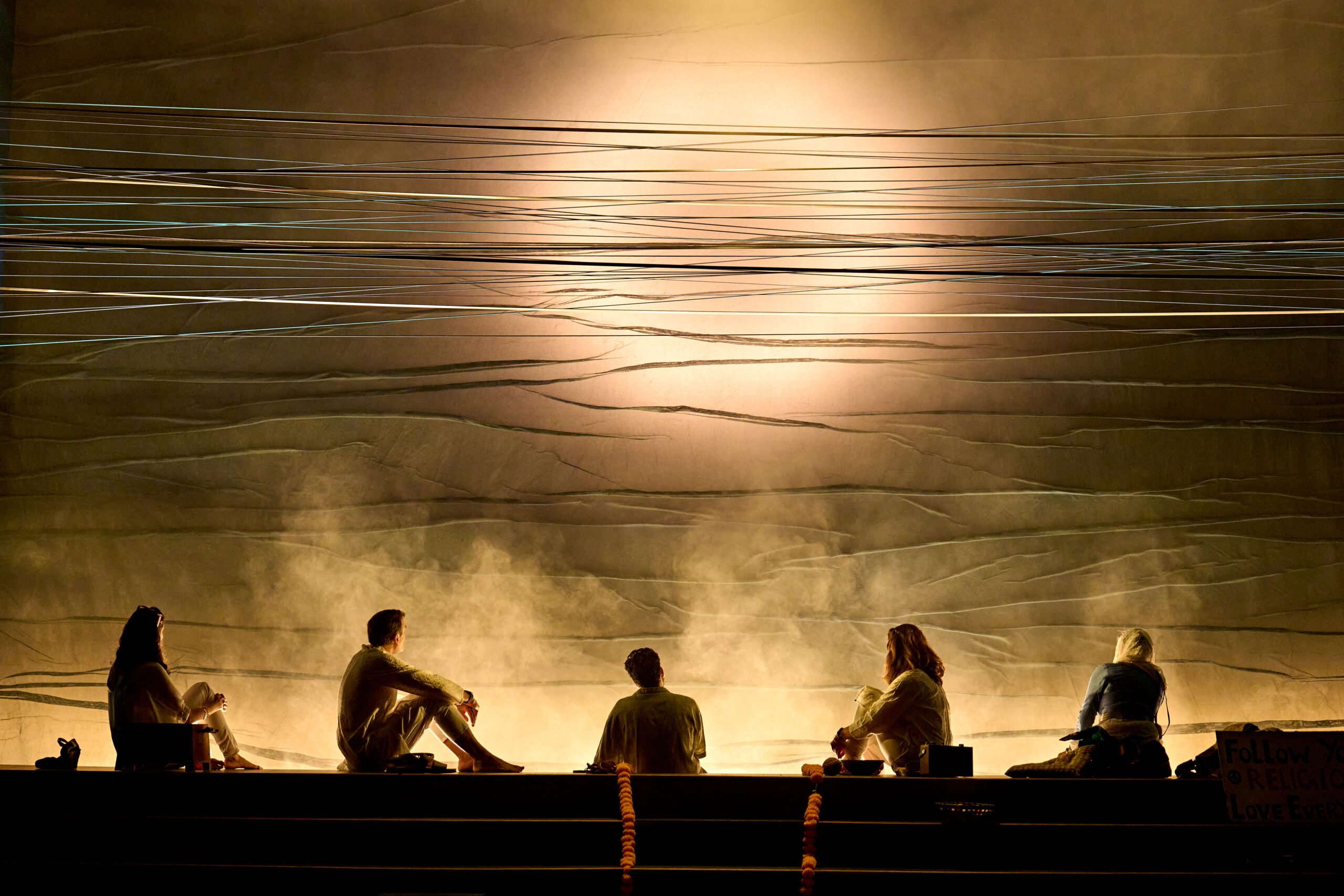Staff Writer Evelyn Shepphird examines the triumphs and pitfalls of Tim Price’s new play ‘Nye’, now playing at the National Theatre until May 2024.
Balancing political drama and personal loss, ‘Nye’ dramatizes the life and work of Aneurin ‘Nye’ Bevan, as it grapples achingly with the loneliness of loss and the fear of death. Ignoring chronology to parallel the thematic foils of Bevan’s health deterioration and political ascent, the piece sets austere childhood classrooms, dark, carcinogenic coal mines, and the wood-panelled houses of Parliament behind powerful ensemble choreography and the brilliant performance of lead actor Michael Sheen. Though odd at times, the piece is ultimately moving–a triumph of theatrical biography.
“It’s really important to give the audience an understanding of what it was like before, and what it will be like again, if we let [the NHS] die.” Remarks director Rufus Norris in an interview hosted by National Theatre Live. It’s clear that he, and every other member of the creative team, are deeply passionate about the subject matter. The set, composed of instantly recognizable hospital curtains and charmingly vintage hospital beds (set design by Vicki Mortimer) are as essential to both storylines as the actors, and the choreography (Steven Hoggett and Jess Williams) brings both a charming levity and a striking intimacy to the piece.
At face value, a deeply political biography seems an odd subject for a play, and the promise to follow Aneurin Bevan from childhood is remarkably ambitious for a fifty-five year-old lead actor. Nevertheless, writer Tim Price, for whom the play was a ten-year project, succeeds in blending memory and legacy in the left-wing, surrealist script.
Where he succeeds in inspirational monologues about the nascence of the NHS and intimate hopeful scenes from childhood, Price fails in his more surrealist comedy. The mid-show musical number, which washes the stage in a lurid pink and oddly calls to mind the golden age of musical theater, is a bizarre way to communicate Bevan’s morphine dosage.

The representations of titans of 20th century British politics aren’t necessarily offensive, but aren’t successfully comedic–Winston Churchill’s (Tony Jayawardena) bright purple suit and Clement Attlee’s (Stephanie Jacob) motorized desk–his exclusive form of transport, for some reason–aren’t funny as much as they are inexplicable.
While certain jokes don’t land, the piece is saved by its fantastic lead actor. Michael Sheen masterfully toes the line between the maturity necessary to portray an older man’s fear of impending death and a child’s insecurity.

Somehow, Sheen, grey-haired and outfitted in red pajamas, is believable as a book-loving child overcoming a stutter, a young politician ostracized for his radicalism, and a dying sixty-two year old. While the role is not especially revolutionary for Sheen, he is nonetheless well cast for his signature earnestness.
Sharon Small, who plays Jennie Lee, fellow socialist and Bevan’s wife, matches Sheen’s talent. Smart, charming, and complex, she is not polite, but is selfless. Unfortunately, the script fails to serve these actors in their most notable shared scene. Lee’s sharp wit and Sheen’s naive enthusiasm are at odds with dialogue that undercuts their characterization: Sheen, in his red pajamas, is hardly the “rutting stag” of Lee’s description.
The surrealism of the script is well supported by the clever blocking in the first act. The ensemble provides a beautiful living backdrop during monologues and are integral to the most moving scenes in the play. Inexplicably, the show forgets them in the second half in favor of projections, which don’t work very well against the waves and wrinkles of NHS curtains. Structurally, it makes sense to strip the technical wonder of the play back as Bevan achieves his life’s work and, twelve years later, his health rapidly deteriorates. But for all that the empty, black stage conveys an aching, confused loneliness, the reliance on virtual projections for the fight against the doctor’s union is almost insulting to the brilliant ensemble.
Despite its occasional misses, ‘Nye’ is a compelling piece. The dark, coal-dusted scenes between Bevan and his father, the golden, wondrous dance in which Bevan overcomes his stutter, and the resounding fervor of his monologue about the NHS are the most enduring images from the play.

“Nye” will be showing at the National Theatre in London until May 2024, and is available to watch on National Theatre Live.
Evelyn Shepphird is a third year student at King's College London and Sciences Po, on the European Studies (French Pathway) Programme. She is the Culture Editor for Roar News.


















